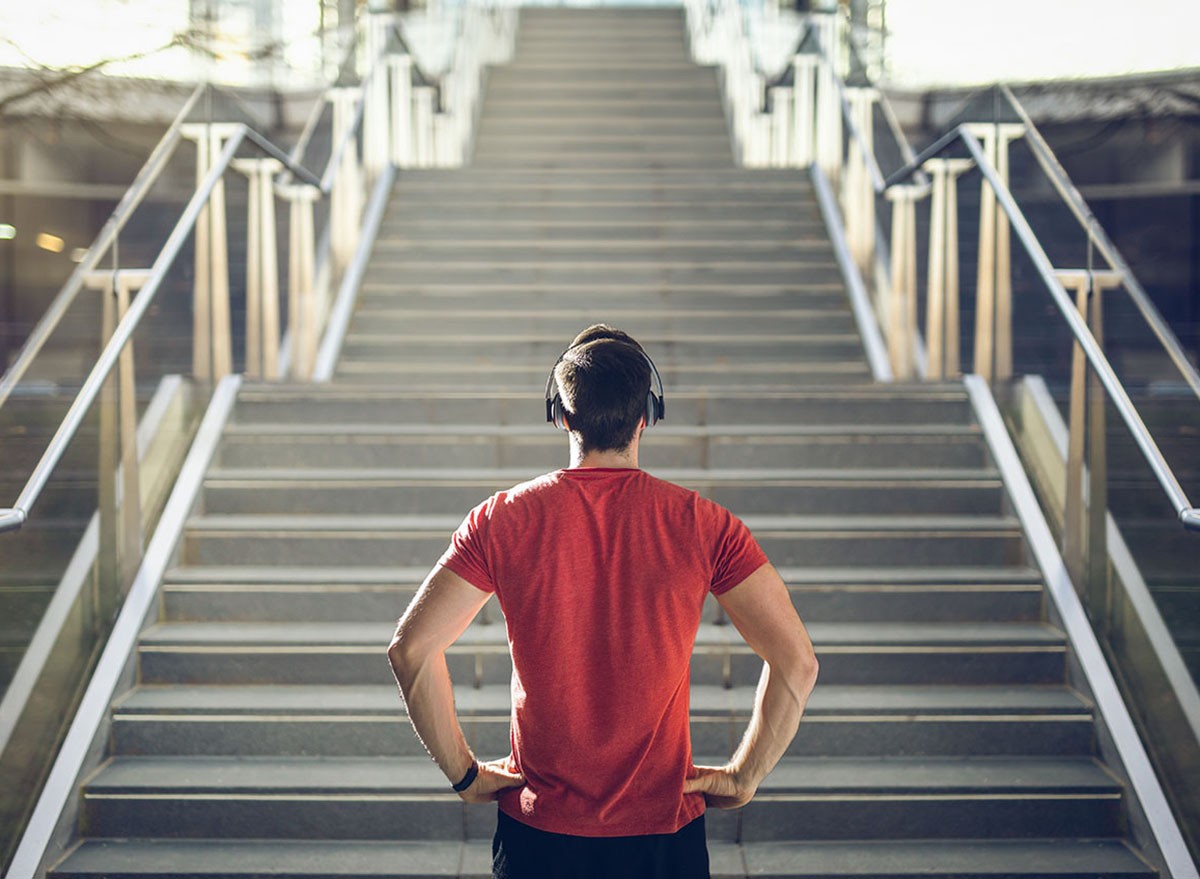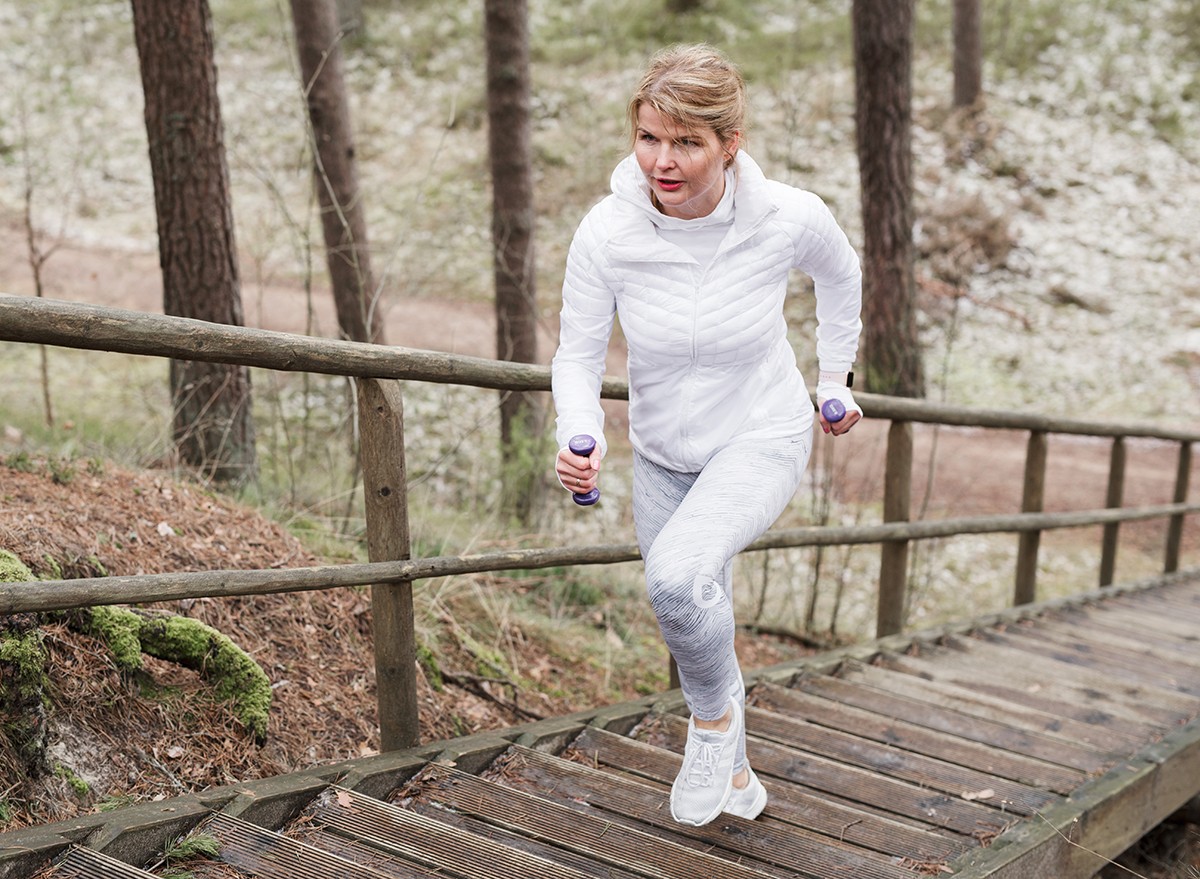Fitness Trainers Agree This 5-Minute Workout Can Transform Your Body

Getting in shape doesn’t have to mean spending hours at the gym—or hours anywhere. Even a small workout can yield huge benefits for your health and fitness, experts say. “But in this day and age, many (perhaps most) people don’t need to be physically active unless they choose to be,” says Harvard Health. “And most evidence suggests that the choice of the kind of activity is far less important than whether to be active at all.” If you’ve had a busy day and want to get the most bang for your buck, exercise-wise, there’s the 5-minute workout fitness trainers agree can transform your body.
RELATED: 5 Short Walking Workouts for Weight Loss.
Stair Climbing Workout

Stair climbing is an intense exercise that can seriously impact your physique. “You’re working your heart, which is the most important muscle of the body, but then you’re also working your legs and you’re building muscles,” sports medicine physician and president-elect of the American College of Sports Medicine Dr. Carrie Jaworski tells TODAY, adding that “it’s very effective…You can get more bang for your buck,” compared to walking. “It’s a great workout.”
Calories Burned

Stair-climbing is a great way to torch calories, up to four times as much as walking on level ground. “It’s excellent cardio,” Dr. Stuart Cherney, chief of sports medicine at Stony Brook Medicine in New York, tells TODAY. “It also incorporates a lot of muscle groups, which is going to require more work and burn off more calories.”
Good For the Heart

Using the stairs is linked to a lower risk of heart disease, according to a study published in Atherosclerosis. “Compared with people who said they didn’t climb any stairs, those who reported climbing five flights of stairs daily — about 50 steps — were about 20% less likely to experience a heart-related problem or stroke,” says Harvard Health. “According to the study authors, stair climbing is a minimal-equipment, low-cost way to lower cardiovascular risk that’s easy to add to a person’s daily routine.”
RELATED: 5 Best Exercises to Improve Coordination.
Short Bursts of Exercise

Taking the stairs is a convenient way to get a quick workout throughout the day. “If you have the choice of taking the stairs or the lift, go for the stairs as it will help your heart,” says Dr. Sophie Paddock of the University of East Anglia and Norfolk and Norwich University Hospital Foundation Trust, Norwich, UK. “Even brief bursts of physical activity have beneficial health impacts, and short bouts of stair climbing should be an achievable target to integrate into daily routines.”
Blood Sugar Benefits

“Taking a three-minute stroll up and down the stairs after a meal may also help you control your blood sugar,” says the Mayo Clinic. “Skimp on sleep last night? If you’re a young woman, stair climbing may wake you up better than a small cup of coffee. A simple stroll up and down the stairs gives you an aerobic workout.”
Hello, Muscles!

Walking up stairs is a quick and efficient way to build muscles, including strong abs. “Climbing stairs can be a wonderful mix of both aerobic exercise and resistance training,” UCLA cardiologist Dr. Tamara Horwich tells NPR.